
Lines On The Water
Vote for a Fishing Future: How do the party manifestos stack up?
My role as Head of Campaigns at the Angling Trust is to ensure our interests as anglers and our love of fish, fishing, and the environment is understood by Government, Parliament, and the regulators. So what are the parties promising when it comes to protecting our interests and ensuring we have a clean and health environment in our rivers, stillwaters and seas? With the well received publication of the Angling Trust’s own general election manifesto, Vote for a Fishing Future, I felt it would be helpful to let you know what the parties have to say on the things we care about.
I have assessed each of the parties against the 10 main policy asks we sent to the politicians:
- Reform the water industry to stop pollution of our rivers and seas.
- Abolish OFWAT and replace it with a single water regulator, accountable to the public, who puts the protection of the environment as its first priority.
- Beef up the EA, the MMO and local IFCAs to ensure they have the resources, expertise and power to properly enforce the law and protect angling.
- Ensure taxpayers’ money given to farmers is used to improve the water environment and does not support actions that damage it.
- Ensure government, including devolved and local government, support policies that protect and promote angling and maximise the economic, social and environmental benefits it delivers.
- Support actions aimed at supporting broad and diverse participation in angling through schools, community centres, youth clubs, and social prescribing.
- Support the rights of all anglers to go fishing and protect and develop angling access.
- Recognise recreationally important species in sea fisheries management and the socio-economic benefits sea angling brings to coastal communities.
- Take concerted action to reverse the decline in salmon stocks throughout the UK.
- Address the damage caused to inland fisheries by invasive species and support fishery managers’ efforts to protect their waters and businesses from unsustainable predation.
This is what I found. I stress, in no way is the Angling Trust seeking to say which of these parties are the best, or how people should choose to vote. These are objective comments based on what is written in their manifestos. Where I have added a comment, it is to try and get behind what has been written, and what that might mean for angling.
Two of the parties refer to sewage pollution in their introductions. Labour talk about, “The visible decline in our communities – families weighed down by soaring mortgages; people waiting on trolleys in A&E; sewage in our rivers – is not an accident.” While the Lib Dems say, “They [the Conservatives] are letting water companies get away with pumping filthy sewage into our rivers and lakes and onto our beaches.” And “we must transform the very nature of British politics itself … end the appalling sewage scandal …”
All parties have things to say that might be of interest and will need further investigation after the 4th July when we know who will form the next government.
Conservatives
The Conservatives open with:
“Seize the benefits of Brexit … speeding up infrastructure and unblocking 100,000 homes, cutting red tape for business, and creating new fishing opportunities.”
New fishing opportunities may also benefit sea angling as the Angling Trust was instrumental in securing recognition of sea angling in the Fisheries Act 2020. Further into the manifesto they add more detail when it comes to speeding up infrastructure by saying they will:
“Introduce reforms to outdated EU red tape to better protect nature while enabling the building of new homes, new prisons and new energy schemes. Along with the reforms to the EU’s bureaucratic environmental impact assessment regime that we have already started, these changes will speed up local and national infrastructure planning systems. Ensure any requirements to offset the impact of new infrastructure and homes on an area are proportionate, without compromising environmental outcomes.”
Without more detail, this could be good in improving standards and making them more effective, or bad in weakening standards resulting in a worse water environment.
They also want to:
“End frivolous legal challenges that frustrate infrastructure delivery by amending the law so judicial reviews that don’t have merit do not waste court time.”
They do not define “frivolous” in this context. This would be a concern if it made the great work of Fish Legal more difficult, including winning judicial reviews against the government to better protect our fishing and the environment.
Ensuring new house building does not add extra pollution to our water environment has been one of the political issues of late. An attempt was made by the last government to remove the legal requirement for nutrient neutrality (new houses should not add more pollution to our rivers and seas) as it was argued this was preventing houses building. Though this was disputed, and this attempt was blocked in Parliament. The Conservative are looking to reintroduce this:
“Abolishing the legacy EU ‘nutrient neutrality’ rules to immediately unlock the building of 100,000 new homes with local consent, with developers required in law to pay a one-off mitigation fee so there is no net additional pollution.”

The Conservatives will look to abolish ‘nutrient neutrality’ rules to aid house building
The Conservatives have a number of things to say when it comes to supporting farming and fisheries. They do not mention angling specifically, but thanks to the Fisheries Act, marine fisheries include the recreational sector. Commitments include:
“Increase the UK-wide farming budget by £1 billion over the Parliament, ensuring it rises by inflation in every year. Farmers will be able to spend every extra penny on grants to boost domestic food production on top of maintaining our approach to Environmental Land Management Schemes.”
They do not provide detail about how much of this will help farmers to protect water courses and improve water quality. Some people argue this is a step back to paying farmers simply to grow food without having to farm in more environmentally responsible ways.
“Reform our planning system to deliver fast track permissions for the building of infrastructure on farms, such as glasshouses, slurry and grain stores, and small-scale reservoirs.”
Improving slurry stores will help to reduce pollution. Small-scale reservoirs will help with water storage and could reduce abstraction from our rivers.
For sea angling, they commit to:
“… replicate the £100 million UK Seafood Fund to continue to support the sector to thrive.”
The Angling Trust has secured funding for a number of projects and developments to support sea angling through this fund.
When it comes to protecting our water environment, the Conservative manifesto restates the commitments they have already made, many of which have been criticised for not doing enough to protect our environment and for timescales that are far too long. They will be:
“Working with the regulator to further hold companies to account, including banning executive bonuses if a company has committed a serious criminal breach. This will build on our legislation for unlimited fines.” And “[use] fines from water companies to invest in river restoration projects, including linking up thriving habitats to multiply the benefits for wildlife and water quality.” In addition, “we will reform the ‘Price Review’ regulatory process for water companies. This will consider how we move to a more localised catchment-based and outcome-focussed approach, that better utilises nature-based solutions and further strengthens sanctions for water companies that fail to deliver for the public, coasts and rivers.”
Managing water at a catchment level and making more use of nature-based solutions is something many have been calling for and a review of the too ridged and complex price review is welcome, but as we have pointed out, there is also a need to reform or abolish OFWAT which is not mentioned.
When it comes to access to our rivers, stillwaters and sea, the Conservatives have repeated their ambition that everyone should be within 15 minutes of green and blue spaces (all the main parties have committed to this), which is something we support. More specifically, they will:
“Continue to work with landowners, charities and others to open up more ‘access to nature’ routes. We will not impose a universal Right to Roam.”
The impact on angling of a ‘Right to Roam’ is something we have raised questions about.
Labour
With the growth in development and the impacts of climate change, Labour has recognised the need to speed up the building of infrastructure to improve water storage and reduce abstraction from our rivers and aquifers by saying they will:
“… make the changes we need to forge ahead with new … reservoirs, and other nationally significant infrastructure.”
They want to reform the planning system and want to build 1.5 million new homes which, if not done properly, may impact on our water environment. They say they will ensure:
“… planning authorities have up-to date Local Plans and reform and strengthen the presumption in favour of sustainable development.” And will, “take a brownfield first approach, prioritising the development of previously used [land]…” and “will take a more strategic approach to greenbelt land designation and release to build more homes in the right places. The release of lower quality ‘grey belt’ land will be prioritised, and we will introduce ‘golden rules’ to ensure development benefits communities and nature.”
Labour also has a view on nutrient neutrality, saying:
“We will implement solutions to unlock the building of homes affected by nutrient neutrality without weakening environmental protections.”
This will need to be looked at in detail to ensure it does not mean a lowering of standards and less good outcomes for the environment.
When it comes to water companies, Labour says they will:
“… put failing water companies under special measures to clean up our water. We will give regulators new powers to block the payment of bonuses to executives who pollute our waterways and bring criminal charges against persistent law breakers.”

Labour say they will put failing water companies under special measures to clean up waters
We would like to see more funding for the Environment Agency and for OFWAT to be radically changed or abolished. We will look to see what ‘new powers’ means in reality and how quickly.
To help farmers, Labours say they:
“… will introduce a land-use framework and make environment land management schemes work for farmers and nature.”
Which is somewhat vague in how to assess how this will help improve water quality and protect water courses. The devil will be in the detail.
On access, Labour says:
“As part of our plans to improve responsible access to nature … will create nine new National River Walks, one in each region of England.”
We will need to understand where and when, and how this might impact on angling although we welcome the omission of any specific ‘right to roam’ commitments which were being pressed on them by the canoeing lobby.
Liberal Democrats
The Lib Dems provide more detail on how they would manage the sewage crisis and tackle water companies. They talk about:
“… [holding] big companies to account by giving them a duty to protect the environment, including banning water companies from dumping raw sewage into rivers, lakes and coastal areas.” And will, “end the sewage scandal by transforming water companies into public benefit companies, banning bonuses for water bosses until discharges and leaks end, and replacing Ofwat with a tough new regulator with new powers to prevent sewage dumps.”
They commit to:
“Strengthen the Office for Environmental Protection and provide more funding to the Environment Agency and Natural England to help protect our environment and enforce environmental laws.”
And go on to say:
“Tackle the national scandal of sewage-polluted rivers, waterways and beaches, and make water companies work for people by:
- Introducing a Sewage Tax on water company profits.
- Enforcing existing laws to ensure that the storm overflows only function in exceptional circumstances.
- Setting legally binding targets to prevent sewage dumping into bathing waters and highly sensitive nature sites by 2030.
- Embracing nature-based solutions to tackle the problem of sewage dumping.
- Strengthening the powers of local authorities to monitor the health of our rivers, lakes and coastlines, restore our natural environment and tackle climate change.
- Introducing a ‘blue corridor’ programme for rivers, streams and lakes to ensure clean and healthy water and setting new ‘blue flag’ standards.
- Improving the quantity and quality of bathing waters and sensitive nature sites with more regular and robust testing of water quality.
- Giving local environmental groups a place on water companies’ boards.
- Introducing a single social tariff for water bills to help eliminate water poverty within the next Parliament.
- Implementing Schedule 3 of the Flood and Water Management Act to require sustainable drainage systems in new developments.
- Mandating all water companies to publish accessible real-time data on any sewage they dump.”
When it comes to the possible impact of planning on our water environment, the Lib Dems set out the following actions they would take:
“[Ensure] new developments result in significant net gain for biodiversity, with up to a 100% net gain for large developments. Introducing a strategic Land and Sea Use Framework to effectively balance competing demands on our land and oceans. [Empower] Local Nature Recovery Strategies to identify a new Wild Belt for nature’s recovery.”
They would use nature-based solution to tackle climate change, for example by:
“Creating and restoring habitats like saltmarshes, mudflats and seagrass meadows to guard against coastal flooding and erosion and absorb carbon emissions.”
These habitats could also prove to be good spawning and nursery grounds for many of the marine species we like to target.

Lib Dems want to create and restore habitats like saltmarshes to help tackle climate change
Staying in the marine environment, they commit to:
“Creating a real network of marine protected areas, ensuring that they are fully protected from damaging and destructive activities, protecting and restoring blue carbon and ensuring climate resilience at sea.”
Which could be both useful and restrictive depending on how the Lib Dems would interpret ‘damaging and destructive’.
In their supporting farming section, they say they want to be:
“Investing in rural and coastal infrastructure and services …”
With sea angling being so important to many coastal communities it will be interesting to see if this extends to supporting the development of our sport and all the economic and social benefits it delivers.
They also want to ensure:
“… that sustainability lies at the heart of fisheries policy, rebuilding depleted fish stocks to achieve their former abundance, including a ban on bottom trawling in marine protected areas. Fishers, scientists and conservationists should all be at the centre of a decentralised and regionalised fisheries management system.” And talk about “introducing a range of other ‘public money for public goods’ programmes, such as nature recovery, planting trees and protecting wildlife, contingent on farmers and land managers opting into an Environmental Land Management scheme.” And “supporting farmers to reduce the pollution of rivers, streams and lakes.”
Supporting reform of local fisheries management, as long as it includes a strong voice for sea angling, is something we would like to see. It would need to be supported by proper funding for IFCAs or their replacement to make them effective. A range of other public money for public good programme must prioritise the water environment.
When it comes to access, they state they would like to:
“Significantly increasing the amount of accessible green space, including … exploring a ‘right to roam’ for waterways and creating a new designation of National Nature Parks.”
We are concerned about what this might mean for angling.
The Greens
The Green Party has a range of policies that fall into our areas of interest, several of which may give cause for concern.
The want to:
“Transform the planning system so new developments come with access to public
services and green spaces are protected.”“Set aside 30% of our land and seas by 2030 in which nature will receive the highest priority
and protection.”“Taking the water companies back into public ownership.”
“Introducing a new Rights of Nature Act giving legal personhood to nature.”
They lack detail in these areas, though for the ‘Right to Nature Act’ they say “for the first time, it
would give Nature legal personhood, meaning that it could not be exploited for financial gain.” It will be interesting to know whether they think the enjoyment of angling and the infrastructure and jobs that support it are exploiting nature for financial gain?
The Greens say they would:
“… increase DEFRA’s budget by £1.5bn, allowing an increase in funding for the Environment Agency and Natural England, to support the vital work they do to protect our environment.” And “end the flow of pollution into rivers and the sea from fertilisers, agricultural waste and sewage, through effective monitoring and enforcement.”
They go on to say:
“Elected Greens will introduce a new Right to Roam Act for England,” and that, “The Green Party is fundamentally opposed to all blood sports and would campaign to introduce a ban on all hunting in the first year of a new parliament.”
We have contacted the Green Party to clarify whether angling is included in their definition of ‘blood sports’, they have responded, saying, “No, we don’t include angling within our definition of blood sports.” However, they have in the past published their intention to ban angling and it’s clear their right to roam on waterways could be a serious threat to angling interests on smaller rivers and streams.

The Green Party say they will introduce a new ‘Right to Roam’ Act for England
They also set out policies on animal welfare, including:
“… a new Commission on Animal Protection, responsible for overseeing all rules designed to protect animals from cruelty and upholding their rights as sentient beings not to be subjected to undue suffering.”
Again, there’s a real danger of angling being caught by such policies.
In the marine environment, the Greens are proposing to:
“… [make] at least 30% of UK domestic waters into fully protected marine protected areas by 2030. We will seek to ban all destructive fishing practices from Marine Protected Areas (MPAs) and other domestic waters.”
Leaving us to seek more information on what is meant by ‘destructive’ in this policy. In addition, they propose to:
“… push for a ban on bottom trawling and other destructive fishing practices in Marine Protected Areas and other waters.”
We have long been calling for a ban on bottom trawling in protected areas.
And in farming they want to:
“Almost triple support to farmers over the next five-year parliament to support the transition to nature-friendly farming.” Allowing them to “conserve and improve the health of the soil and the wider environment, which in turn would lead to cleaner rivers.”
Reform
Reform have nothing to say about our water environment, pollution, or how to better protect it. They were also the only party not to respond to our manifesto for angling.
Previous EU laws, many of which have been retained post Brexit, are the foundation of protection for our rivers, stillwaters, and sea. Too often it is not the law itself that is the problem. Much of our campaigning work and that of Fish Legal has focused on the failure of regulators, the government, and water companies to abide by or enforce the law. Yet Reform say they will:
“Legislate to scrap EU Regulations with immediate effect.” And add “Britain still has over 6,700 retained EU laws, which we will rescind. British laws on State Aid, Competition, Employment, Net Zero and the Environment are still based on EU regulations.”
This could pose a huge risk to our water environment and make it impossible to hold polluters to account, take steps to improve habitats, and prevent regulators from being able to operate.
Reform makes no reference to protecting the freshwater environment in their section on farming, and say nothing about protecting the marine environment or providing more support for sea angling in their section on fisheries.
So, there you have it. The party manifestos reviewed from the angling perspective set against the policy asks in Vote for a Fishing Future. And if you’ve an appetite for any more of this stuff you can see what our colleagues at River Action have published in their own manifesto analysis here and The Rivers Trust here.
I do hope this will help you in whatever decision you take when it comes to casting your vote on the 4th of July.
Stuart Singleton-White
Head of Campaigns, Angling Trust
June 2024
You might also like

Angling Trust Presses Water Commission to Go Faster and…

VIDEO: Alice and her 3 boys have a day…
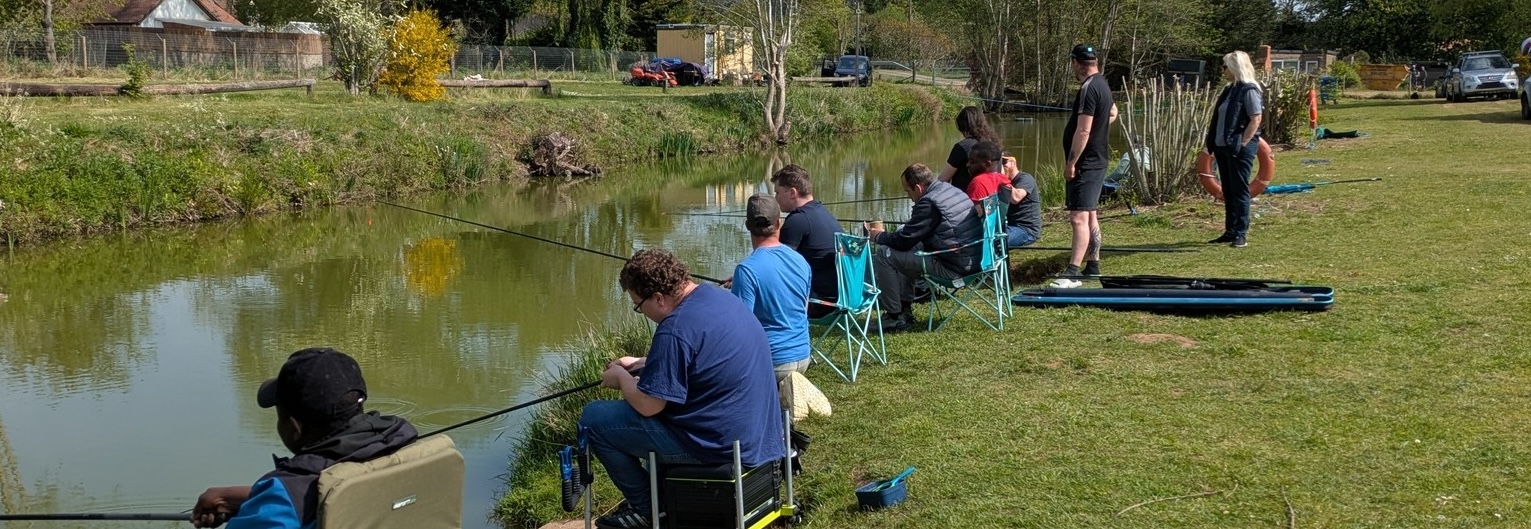
Recovery Rods help boost mental health and wellbeing by…

Teddy is hooked! – back for more fishing and…

Thank you to all our volunteers – you do…

Get Fishing Fund – Funded Project: HACRO were visited…
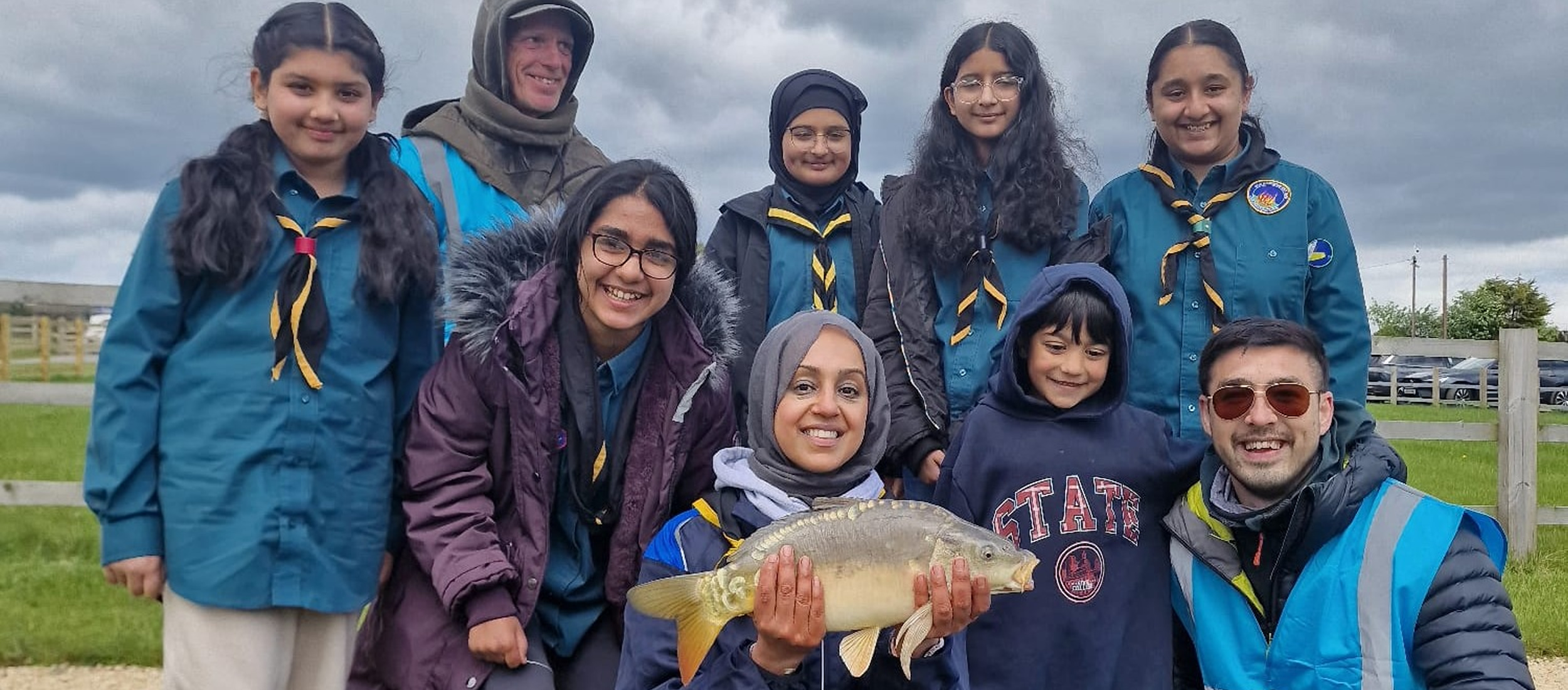
New Horizons had an amazing day taking part in…
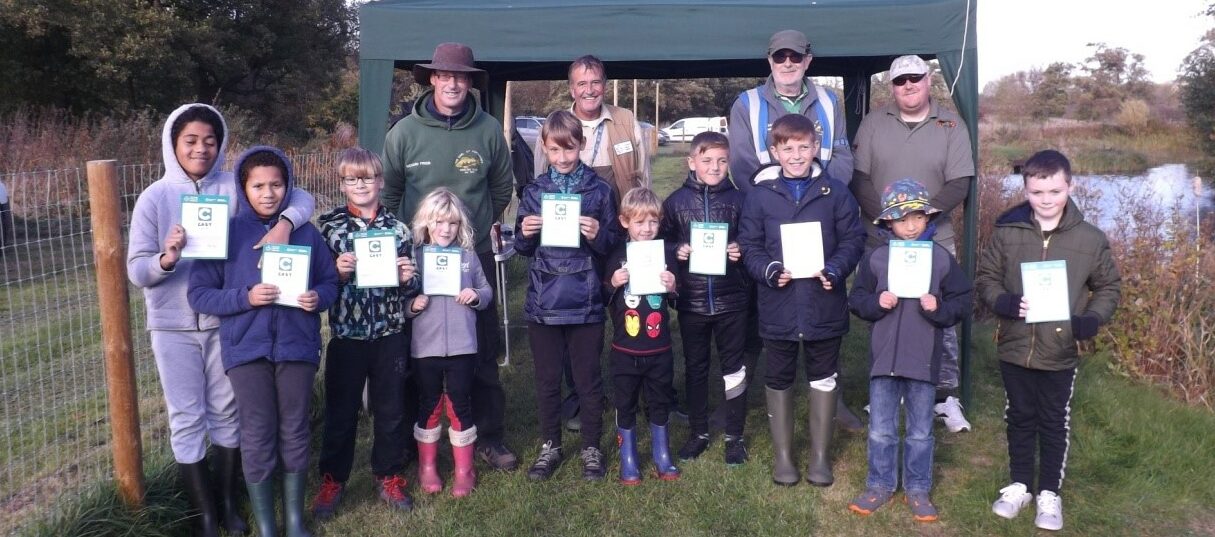
Get Fishing Fund – Funded Project Blog: Steve Clamp…
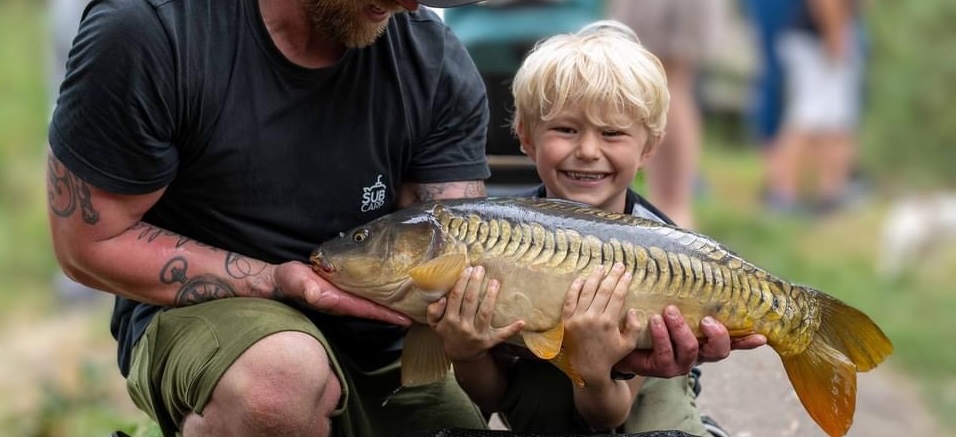
Somersham Angling Club hosted some fabulous Get Fishing events…
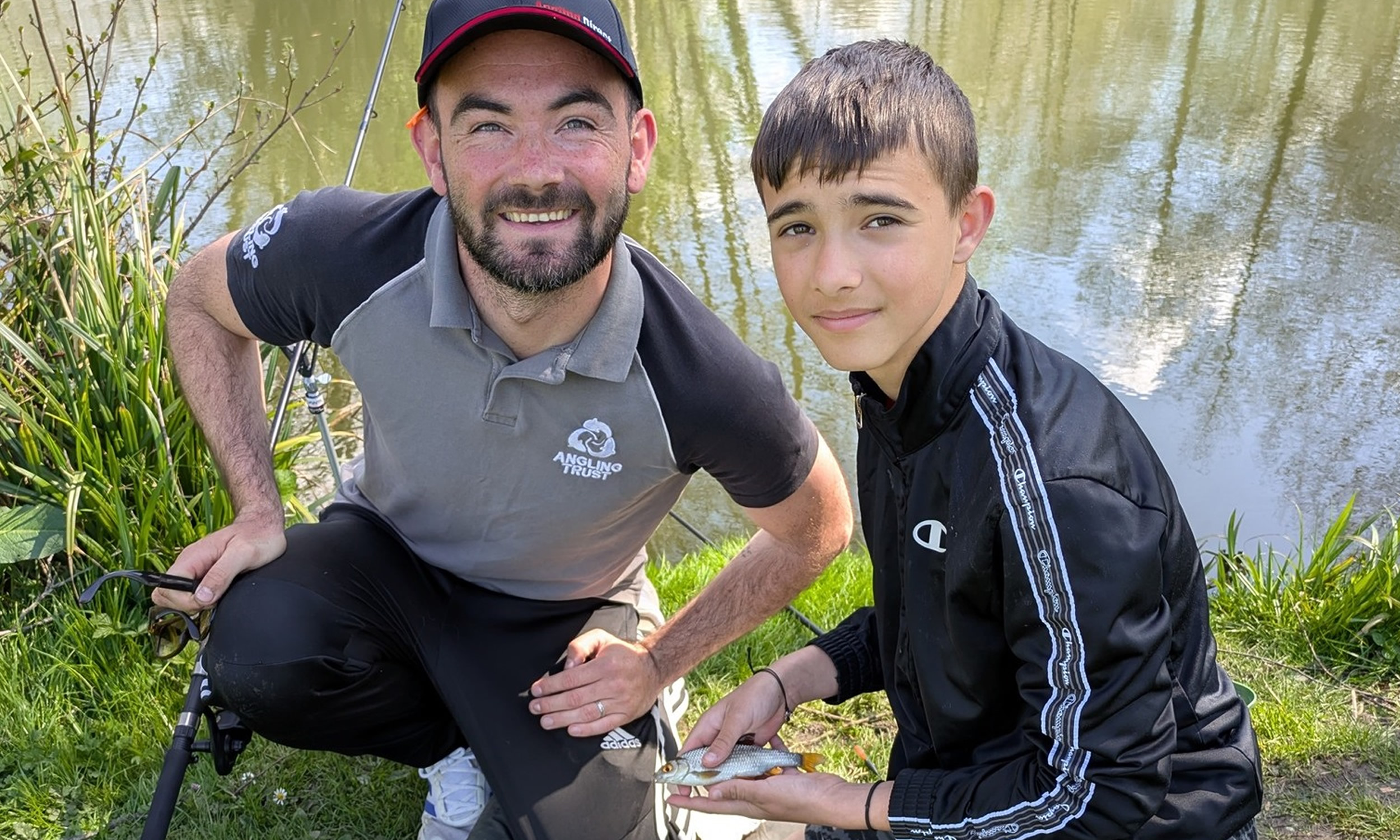
BLOG: Jack’s Back! What’s been happening in my East…

We want a water industry fit for purpose

VIDEO: What are your favourite fishing moments?! – Get…

Angling Trust Presses Water Commission to Go Faster and…

VIDEO: Alice and her 3 boys have a day…

Recovery Rods help boost mental health and wellbeing by…

Teddy is hooked! – back for more fishing and…

Thank you to all our volunteers – you do…

Get Fishing Fund – Funded Project: HACRO were visited…

New Horizons had an amazing day taking part in…

Get Fishing Fund – Funded Project Blog: Steve Clamp…

Somersham Angling Club hosted some fabulous Get Fishing events…

BLOG: Jack’s Back! What’s been happening in my East…

We want a water industry fit for purpose

VIDEO: What are your favourite fishing moments?! – Get…

Angling Trust Presses Water Commission to Go Faster and…

VIDEO: Alice and her 3 boys have a day…

Recovery Rods help boost mental health and wellbeing by…

Teddy is hooked! – back for more fishing and…

Thank you to all our volunteers – you do…

Get Fishing Fund – Funded Project: HACRO were visited…

New Horizons had an amazing day taking part in…

Get Fishing Fund – Funded Project Blog: Steve Clamp…

Somersham Angling Club hosted some fabulous Get Fishing events…

BLOG: Jack’s Back! What’s been happening in my East…

We want a water industry fit for purpose









